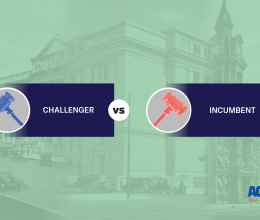In 1954, Cleveland-area physician Sam Sheppard was arrested for the murder of his pregnant wife Marilyn. Before the trial, the media was accused of bias against Sheppard and inflammatory coverage of the case, and was criticized for immediately labeling Sheppard as the only viable suspect. Cleveland papers published the names and photographs of the jurors, opening them to outside influence. Trial judge Edward Blythin denied defense motions to move the trial out of Cleveland or postpone it until the publicity died down. Despite his claims of innocence and what some saw as a lack of physical evidence, the jury found Sheppard guilty of second-degree murder, and he was sentenced to life in prison.
Sheppard attempted to appeal his case on the grounds that he received an unfair trial due to the influence of the media on the jurors. The U.S. Supreme Court agreed to hear the case in 1966.
The national, Ohio, and Greater Cleveland ACLU organizations joined together to file an amicus brief supporting Sheppard's claims. Bernard A. Berkman, chair of the Greater Cleveland chapter, along with Sheppard's lawyer, F. Lee Bailey, argued the case before the Supreme Court.
The court found that Sheppard had been denied due process and reversed his murder conviction. The decision noted that “the state trial judge did not fulfill his duty to protect Sheppard from the inherently prejudicial publicity which saturated the community and to control disruptive influences in the courtroom.”
The decision also noted the balance between the First Amendment's freedom of the press and the Sixth Amendment's guarantee of a fair trial: “Collaboration between counsel and the press as to information affecting the fairness of a criminal trial is not only subject to regulation, but is highly censurable and worthy of disciplinary measures.”
Sheppard was granted another trial in 1966, and was found not guilty.
Read the decision here.









